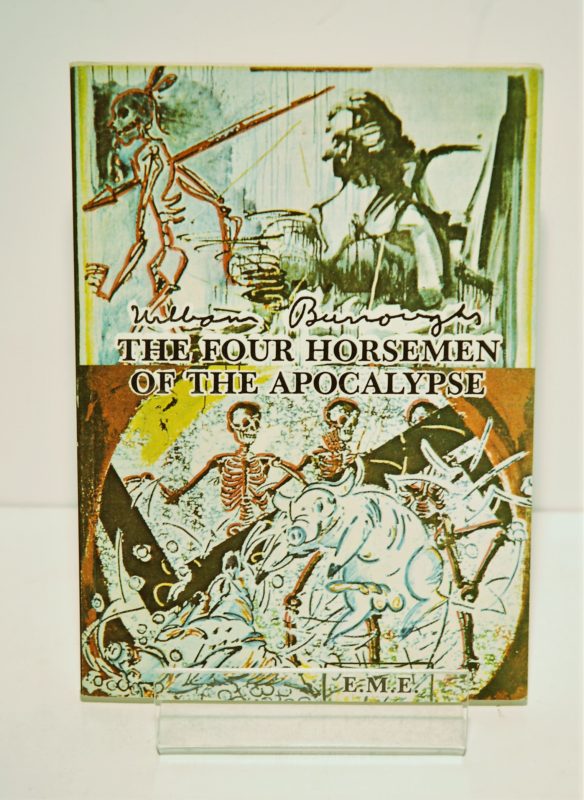Literature, Modern First Editions, Shop News
Recent Acquisitions: William Burroughs First Editions
Henry Pordes is proud to have picked up some first edition titles by William Burroughs, the legendary American author of Naked Lunch (1959), often proclaimed as one of the most important innovators in the art of experimental prose writing of the latter half of the twentieth century. Let me draw attention to three of his more elusive and lesser known titles—all of which we have recently added to our shelves—whose occasional and one-off feel, in our opinion, make them especially attractive to any Burroughs collector.
Ali’s Smile: Naked Scientology (1991) contains a series of essays, most of which had been published already in various newspapers and magazines, on the controversial newly founded religion in which Burroughs held a fascination throughout the 1960s, eventually joining the church towards the end of the decade. Burroughs was impressed with Scientology’s use of language as a means of fighting social control, and he held some of its central tenets, principally its use of language, in mind when he wrote The Ticket that Exploded (1962) and Nova Express (1964). By the end of the decade, however, he was disenchanted with Scientology’s secrecy and dogmatism. The edition, published by Expanded Media Editions in Bonn, is bilingual, in German and in English. Burroughs’s disillusionment with the structures and functions of the organisation was the spur behind the titular short story of this compendium, ‘Ali’s Smile’, originally published by Unicorn in 1971 and republished 1973 in a collection of stories titled Exterminator! We have a first London edition of that too, in very good condition, with the dust jacket also in very good condition.
The Four Horsemen of the Apocalypse (1988), also published by Expanded Media Editions and in German and English, is the transcript of a speech Burroughs gave at the ‘Planet Earth Conference’ held at the Institute of Ecotechnics in Aix-en-Provence in 1980. It is illustrated by the German artist Christof Kohlhofer. The psychedelic—and indeed, apocalyptic—drawings of skeletons and skulls are suited to Burroughs’s idiosyncratic style, characterised by absurdist rants and ramblings, hallucinogenic weirdness and half-finished sentences and intentional grammatical slips, and his self-mythologised persona and much publicised use of illicit drugs and the inspiration he drew from their effects. This, though, is not supposed to be a work of fiction but rather a (somewhat prescient) foreboding of man’s destruction of the planet. So Who Owns Death TV? “A Black Bag Pamphlet” (1967) is a strange pamphlet of three cut-up pieces of experimental writing, one of which is by Burroughs, the other two by Claude Pélieu and Carl Weissner.
We also have a fine London first edition of the book for which Burroughs is most famous, Naked Lunch (1959), first American and second London printings of The Western Lands (1987), a first London edition of The Ticket that Exploded (1968), a first American Cities of the Red Night (1981), and a first American signed edition of The Place of Dead Roads (1983).

